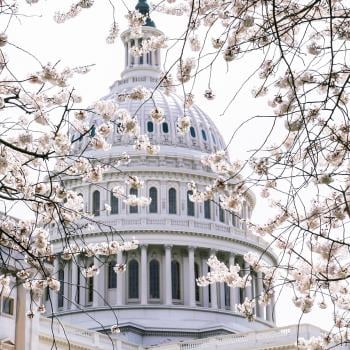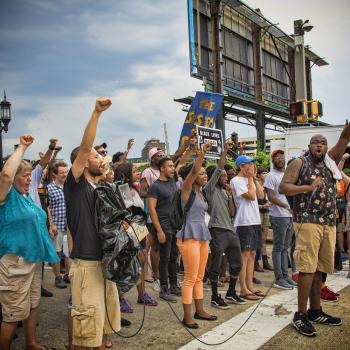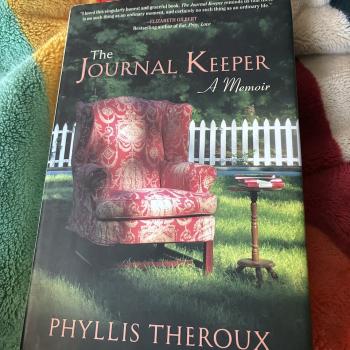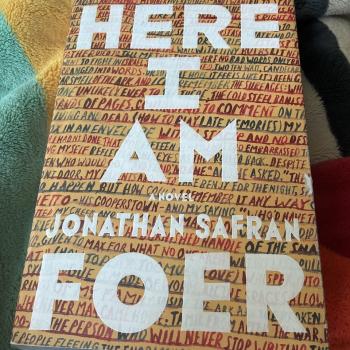Oh friends, have I got a TREAT for you today. I’m only a couple of chapters into her book, but Mihee Kim-Kort’s newest release, Outside the Lines, is perfect for learning to color outside the lines. You’ll simultaneously feel challenged and encouraged by her wise and winsome writing and storytelling abilities …and if you’re anything like me, you WILL start to wonder how embracing queerness will transform your faith. Enjoy this interview with Mihee!
—

Tell us a bit about yourself, will you? My paternal grandparents named me “Mihee,” a relatively common, familiar Korean name, but rendered in written Chinese its characters mean “beautiful girl.” Even something as simple as a name reminds me that our roots are often complex with structures that include hidden histories and legacies of everything from gender to national to class struggles. I learned from my parents that much of the Korean vocabulary consists of words derived from Chinese, and even today South Koreans generally use a hybrid writing system in which words derived from Chinese are written with Chinese characters, while Korean words are written in hangul.
But much of these histories were hidden from me until fairly recently. I hid from them. I didn’t learn Korean history. I didn’t learn to speak much Korean. And then I chose in college to take English name, “Rachel,” to signify that I’m one-of-you. American. White. Christian. Legitimate. Except that I ended up not using it very much. It didn’t taste quite right every time someone asked me my name. More often I would chose instead to struggle through the explanation of where it comes from and what it means and how to spell it and emphasizing the English phonetic equivalent (mee-hee). I chose instead to make legible my foreignness, my outsidership. It made more sense to me.
And this is something that I inherited from my parents when they immigrated with me to the US in 1979 when I was a year old. I grew up surrounded by the mountains of Colorado comforted by their presence and the reminder the world is so much bigger than one story. Because I loved and needed the constant sanctuary of those mountains I went to the University of Colorado in Boulder for my undergrad. Last year was the first time my three children experienced the home of my heart when we visited for a month during the summer.
These days I found refuge in the hills of southern Indiana, as well as in the work in front of me: raising three children with my Presbyterian minister-spouse, doing doctoral work in religious studies, preaching as a pulpit supply.
Let’s talk about your book: what, in a nutshell, is your book about anyway? I tried to write, or to begin to write about my coming into being queer in this season of life. What it might look like and mean to be faithfully queer and queerly faithful in the everyday and ordinary—raising kids, sitting in the pews, going to the grocery store, doing volunteer work in the community, being a part of a church.
Do tell, what was the inspiration behind it? After the twins were born in 2011, I felt like so much of what I was exploring and writing about was about my identity. Although I’m still working on what this means exactly, I often tell people that parenthood made me queer. Something broke open when I became a mother, and it was something that I couldn’t run away from anymore. And then I discovered in the writing and sharing, and in being seen and loved that there is a healing and making-whole in embracing who I am as a queer person. As Darnell Moore says: Queerness is magic. It just made me more me. And I wanted to give this slice of life to others who might be experiencing something similar.

How do you hope readers will be changed by your words, and also, how have you been changed by writing the book? I want to talk about freedom, but it’s more than freedom, and it’s not just for the sake of individual freedom. It’s not one person’s freedom that matters, but everyone’s freedom. And so my hope is that something like this will help people be free, but also encourage people to tell their own stories, and to make sense of their own lives for the sake of others. Writing this book was just the beginning—I’m not done with me. And I hope that helps others to see that we’re never really done, and that this is a beautiful thing.
We oftentimes talk about “coloring outside the lines” on this blog: so, how do you hope your book will help readers color outside the lines? I think that it’s more than serendipitous that our titles and themes are so similar! I think coloring outside the lines is about cultivating trust and courage—to live beyond the scripts we’ve been given in this world whether from our families or churches or countries or histories. But it isn’t just about living outside or beyond those lines—we recognize the ways those lines are present—the borders, the walls, the fences, the doors, and who is present in those places. What are their stories? What are they telling us about God’s kingdom?
How and where can we find you on the Internet? You can find me on my website and on Twitter.
—
Mihee’s words are a gift to the rest of us. If you’d like the chance to win a copy of her book, leave a comment below telling Mihee what inspires you!
*Post contains Amazon Affiliate links













